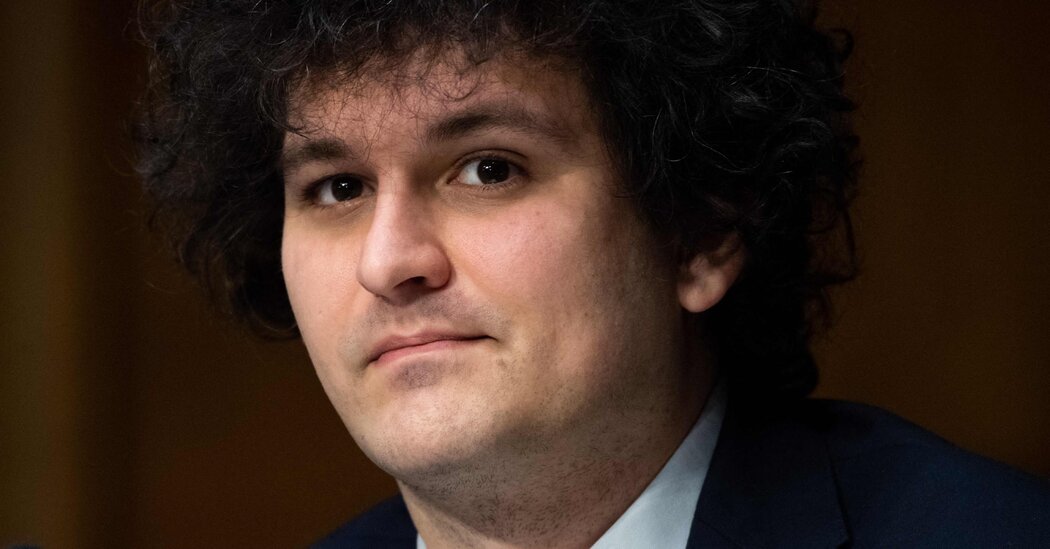Lawyers for the collapsed cryptocurrency exchange FTX on Tuesday painted a grim picture of the company’s finances and the fate of the billions of dollars in assets that customers lost.
“A significant number of assets have either been stolen or are missing,” James Bromley, a partner at the law firm Sullivan & Cromwell representing FTX, said during a bankruptcy hearing in federal court in Delaware.
FTX filed for bankruptcy this month after a run on deposits owed the company $8 billion. The company’s failure has led to investigations by the Securities and Exchange Commission and the Department of Justice focused on whether FTX embezzled client funds when it lent billions of dollars to Alameda Research, a crypto hedge fund. Both companies were owned by Sam Bankman-Fried, a former crypto billionaire who relinquished control of the companies at the time of the bankruptcy filing.
The stunning collapse has left amateur investors and big companies scrambling to reclaim billions of dollars worth of cryptocurrencies they deposited on the FTX platform. In the coming months, the bankruptcy process will determine how much of that money can be recovered.
But more than a week into the legal process, Mr Bankman-Fried’s poor management of FTX by Mr Bankman-Fried has left lawyers with limited information about the company’s finances, Mr Bromley said at the hearing.
The aftermath of FTX’s demise
The sudden collapse of the crypto exchange has stunned the industry.
- A spectacular rise and fall: Who is Sam Bankman-Fried and how did he become the face of crypto? The Daily charted the spectacular rise and fall of the man behind FTX.
- A symbiotic relationship: Mr. Bankman-Fried’s built FTX in part to support the trading activities of Alameda Research, its first company. The ties between the two entities are now coming under scrutiny.
- Wall Street aims for profit: Brokers are offering FTX clients pennies on the dollar for the bankruptcy rights to their funds tied up on the platform.
- A company in disarray: FTX’s new CEO, who helped manage Enron after the collapse, said he had never seen “such a complete breakdown of the company’s control.”
He said the company had suffered “cyber attacks” and assets were still missing. He seemed to be referring to an apparent hack the day the company filed for bankruptcy, which came to light when crypto researchers noticed the unauthorized movement of hundreds of millions of dollars worth of FTX assets.
At the hearing, Mr. Bromley presented a detailed account of FTX’s corporate history and its abrupt collapse this month. Mr Bankman-Fried had established a business empire that was run as his ‘personal fief’, Mr Bromley said.
But in the end he said: “the emperor had no clothes.”
Over the past two weeks, FTX has come under intense scrutiny on how it spent its money before the collapse. A business entity involved in the bankruptcy, Mr Bromley said, bought nearly $300 million worth of real estate in the Bahamas, where FTX was based, including homes and vacation properties used by senior FTX executives.
Mr Bromley also gave new details about the final hours before Mr Bankman-Fried relinquished control of the company on Nov. 11. Mr. Bankman-Fried did not make the decision until early that morning, Mr. Bromley said, after consulting with his lawyers at the Paul Weiss law firm and with his father, Joe Bankman, a professor at Stanford Law School.
In his account of the chaos at FTX, Mr. Bromley repeated the criticism of Mr. Bankman-Fried’s management expressed last week in a stunning lawsuit by John Jay Ray III, who took over from Mr. Bankman-Fried as CEO from FTX. .
Mr. Ray, a veteran of managing corporate bankruptcies, previously oversaw the dissolution of energy trading firm Enron. But in last week’s filing, he wrote that the mess at FTX was the worst he’d seen in his career.
In a letter to staff on Tuesday, Mr Bankman-Fried apologized for the company’s collapse. He said he regretted filing for bankruptcy and reluctantly gave in to pressure to do so.
“Potential interest in billions of dollars in funding came within about eight minutes of my signing the Chapter 11 filings,” he said in the letter, which was obtained by The New York Times. “Between those funds, the billions of dollars of collateral the company still had and the interest we received from other parties, I think we probably could have returned a lot of value to customers and saved the company.”
In litigation, FTX’s new management has sought to distance itself from Mr. Bankman-Fried, insisting that he does not speak for the company. Much of Tuesday’s hearing focused on a range of legal issues raised in the early stages of the bankruptcy.
Over the weekend, FTX released a redacted list of its top 50 creditors, showing that those entities or individuals owed a total of about $3.1 billion. But the company kept the creditors’ names secret.
A key issue at the hearing was whether FTX should disclose more detailed information about its creditors, a group likely to include hundreds of thousands of ordinary people who have deposited money on the exchange. Lawyers for FTX and some creditors argued that revealing that information would compromise users’ privacy.
Judge John Dorsey of the US Bankruptcy Court ruled that the information may remain private for the time being. “Everyone in this room knows that the internet is full of potential dangers,” he said. “It is important that we protect those individuals who want to participate in this case.”
The hearing attracted an unusual level of attention for bankruptcy proceedings, with more than 500 people logging into a Zoom broadcast. During an intermission, a person on the call began blasting the Justin Bieber song “Sorry.”
“I heard we had some entertainment during our intermission,” Judge Dorsey said as he returned to the courtroom.

